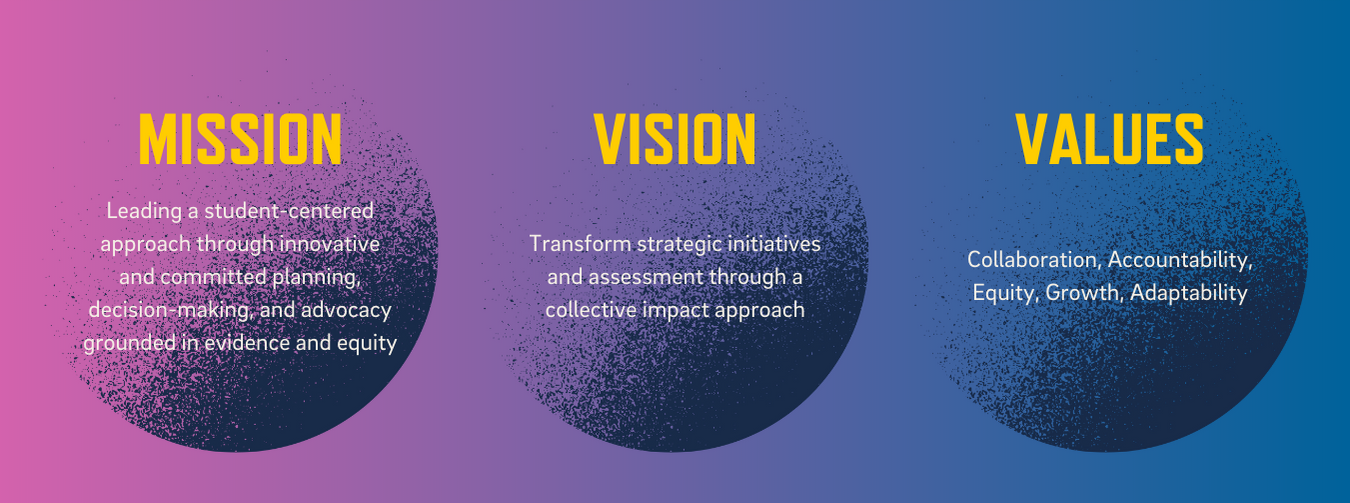Assessment, Evaluation & Organizational Development
- Initiatives
- Resources and Assessment Toolkit
- Data
- Culture and Core Values
- Meet the AEOD Team

In 2021, the Assessment and Evaluation Leadership Workgroup began to critically evaluate our current assessment practices, with an eye toward centering equity and our students.
Using the article “There is No Return to Normal”1 as our framework, we identified a set of Core Values that guide our work, as well as corresponding New Solutions that serve as goals toward our Core Values. We are also developing processes that will operationalize our Core Values and New Solutions.
In alignment with the Student Affairs Strategic Plan and Strategic Plan for Inclusive Excellence, the following Core Values establish our shared foundation for assessment. We bring forth a student-centered approach and commitment to foster a culture of critical, equity-oriented assessment. In particular, our assessment work illuminates continuous improvement opportunities in service of the three tenets of Inclusive Excellence: Access and Success; Climate; and Accountability.
| Core Values | New Solutions |
|---|---|
|
The purpose of assessment is to promote accountability and transparency. |
Utilize a collective impact approach to serving our students, faculty, and staff by using a holistic understanding of campus experiences. |
|
Assessment within the division looks different between units depending on unit responsibilities and population(s) served. |
Build processes and expectations for collaborative or independent assessment practices that promote progress, while also incorporating flexibility. |
|
The voice of those we serve is integral to the work of assessment (Montenegro & Jankowski, 2020). |
Be mindful of the student population(s) being served and actively involve them as partners in assessment, including constructing assessment tools and data sense-making. Additionally, use existing data whenever possible to reduce the burden on our students, faculty, and staff. |
|
Assessment opens up an opportunity to engage in equity-minded sense-making (McNair, Bensimon, & Malcom-Piqueux, 2020). |
Build assessment practices and policies that strive to be inclusive and are bias-aware. Interrogate and disaggregate data and include multiple data points to provide a holistic scope of student experience and development. |
|
Assessment creates space for critical reflection leading to action, and this action is a crucial component of assessment as continuous improvement. |
Ensure assessment practices leave room and time for flexible discussion, intentional reflection, and deliberate action. Be transparent about actions from result findings and processes to address gaps. |
1. Hong, R. C., & Moloney, K. (2020, October). There is no return to normal: Harnessing chaos to create our new assessment future. (Occasional Paper No. 49). Urbana, IL: University of Illinois and Indiana University, National Institute for Learning Outcomes Assessment.
University Center 112
9500 Gilman Drive #0015
La Jolla, CA 92093-0015